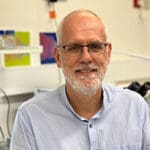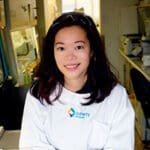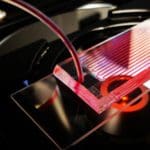Type: Breast cancer

Professor Selth and his team have developed a new CDK inhibitor, called AU2-94. Preliminary evidence suggests that AU2-94 effectively blocks growth of breast and prostate cancer cells without causing significant toxicity.

This project will repurpose an existing cancer drug, Entrectinib, to treat HER2+ breast cancers that are resistant to current anti-HER2 targeted therapies.

Dr Koay and her team are developing a novel type of immunotherapy which targets a specialised subset of T-cells which possess the potential to attack cancer more effectively than existing T-cell immunotherapies.

Associate Professor Clare Stirzaker and her team are developing an accurate and sensitive test that can detect breast cancer in blood, also known as a liquid biopsy.
In this project Professor Fazekas and team will analyse pre- and post-therapy blood samples from breast cancer patients and use machine learning statistical techniques to identify the immune signatures that can predict patient response to a particular therapy with the greatest accuracy.
Dr Latham’s team is pursuing the preclinical assessment and development of a novel class of drugs that aim to prevent cancer relapse by inhibiting the growth of cells that have already metastasised.
Dr Beatriz Perez San Juan’s research is focussed on developing new targeted treatments for triple negative breast cancer that overcome the challenge of chemotherapy failure.
Using high resolution molecular profiling technology, Associate Professor Gallego Ortega and his team have been studying MDSCs – trying to understand how they work, so they can develop treatments that block these cells.

A/Professor Croucher and his team are investigating new treatment options for triple-negative breast cancers that have spread.

A/Professor Wang and her team will develop a test to monitor treatment response and watch for the early signs of treatment failure.